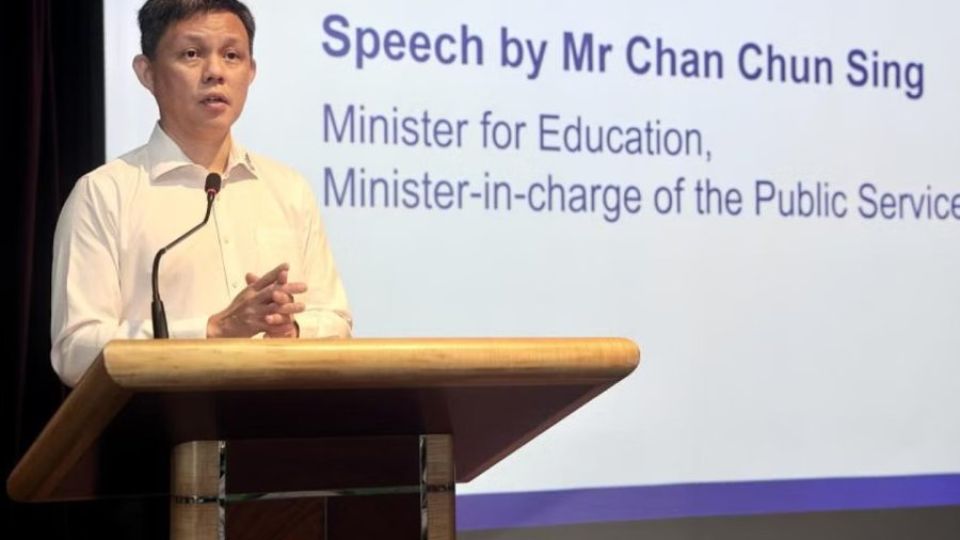SINGAPORE (ANN/THE STRAITS TIMES) – Next year, all junior colleges in Singapore will have student ambassadors trained through counter-radicalisation workshops, a step aimed at combating the increasing threat of online radicalisation among youth.
These workshops, led by the Internal Security Department (ISD), were initially tested in 2022 and are now being expanded across junior colleges in 2023.
Singapore’s Education Minister, Chan Chun Sing, highlighted these efforts at the Public Service Mobilisers conference, emphasising the importance of shielding young people from terrorism risks.
Furthermore, plans are underway to introduce similar workshops at the upper-secondary school level by 2024.

The workshops aim to teach students and educators to identify signs of radicalisation in an individual, such as one sharing his or her extremist views with friends and relatives, or making remarks that promote ill-will towards those of other races or religions.
They will also learn how to react if they encounter a radicalised individual, such as by looking for a trusted adult, like a teacher, for help.
Chan said self-radicalised individuals here are getting younger, with 11 out of 37 Singaporeans dealt with under the Internal Security Act (ISA) since 2015 being below 21 years old.
He said: “Extremist groups are becoming increasingly skillful at using digital media to indoctrinate and recruit people… Five (of the 11 youths) had planned to carry out attacks in Singapore and the youngest detainee was aged 15.
“The threat (of self-radicalisation) to Singapore remains high and we cannot be complacent.”
Between December 2022 and January 2023, two Singaporeans aged 15 and 16 were detained by the ISD for terrorism-related activities. They were both inspired by extremist groups.
The 15-year-old had planned to carry out knife attacks and behead non-believers in popular tourist areas here, and become a suicide bomber.
The 16-year-old joined multiple extremist-themed servers on online gaming platform Roblox, where he virtually shot and killed “enemies”.
In December 2022, a self-radicalised 18-year-old student was detained after making plans to take part in armed violence in Singapore and abroad.
He had plans to stab and kill non-believers in dark alleys here, carry out a mass-casualty attack at Amoy Quee Camp by recruiting a suicide car bomber, and construct a C4 explosive device to bomb the Keramat Habib Noh grave site at Haji Muhammad Salleh Mosque in Tanjong Pagar.
In February, Home Affairs and Law Minister K. Shanmugam said most of the young detainees have made good progress in their rehabilitation as ISD works with partners to help them move on and integrate them back into society.
Shanmugam said: “When we pick up young people, we put a lot of focus on them because we want them to go on and fulfil their potential in life. The idea of detention is not that that is the end. There is hopefully a beginning of a new path.”


